The Negotiation Nation
When your toaster's lawyer talks to their toaster's lawyer
The Janky Time Machine’s temporal dampener started making that grinding noise again—you know, the one that sounds like a cat arguing with a blender—and deposited me somewhere in the not-so-distant future where the streets are eerily quiet. No billboards. No neon. No “SALE! SALE! SALE!” screaming from every surface. Just people walking around looking vaguely annoyed at their phones.
Some context:
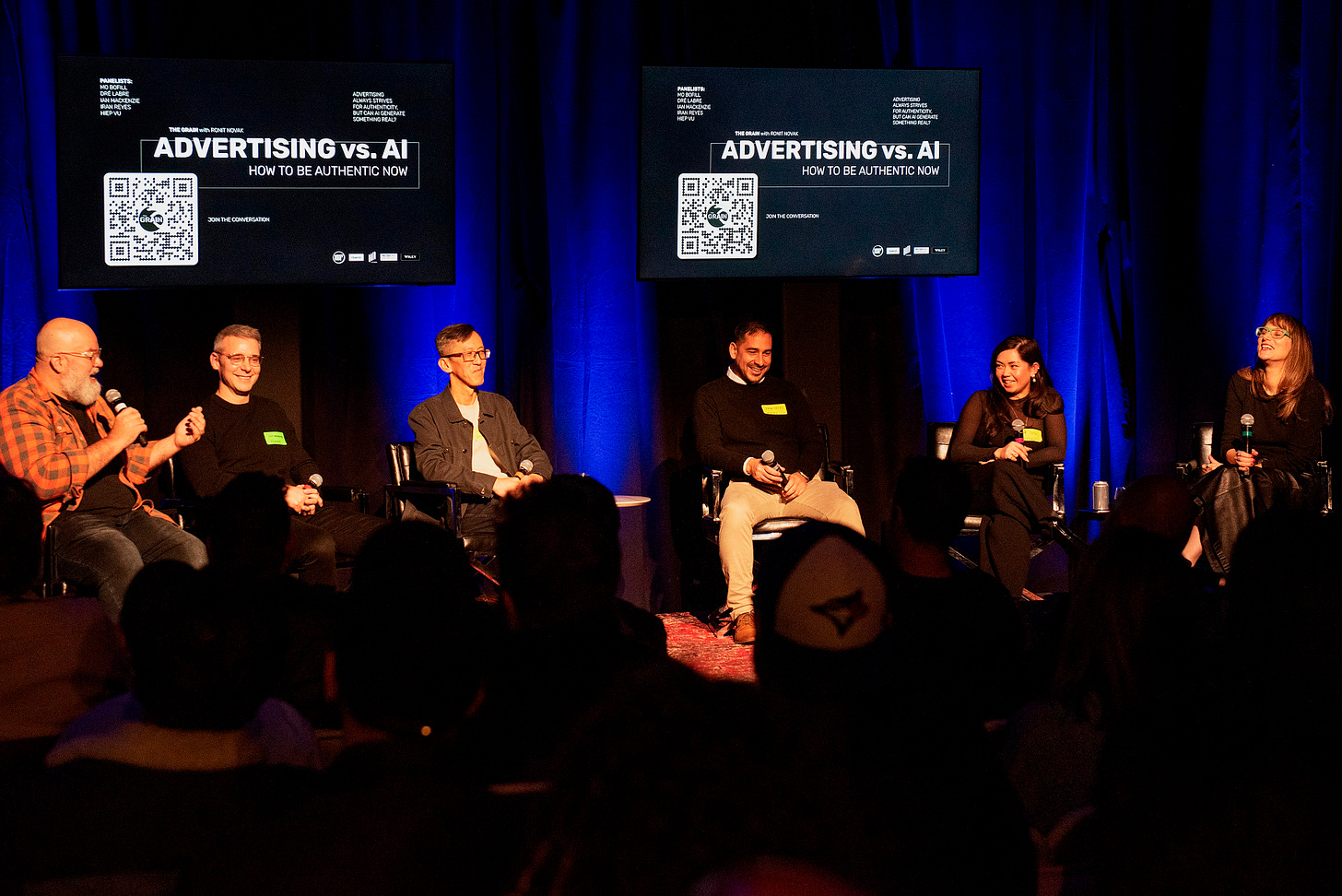
This week I spoke on panel about AI and Advertising. Whilst keeping things spicy and provocative, I spontaneous rambled out a future advertising agent-to-agent scenario, which I’ve turned into today’s post.
Stopped by what used to be called a “home goods store” but is now just a beige warehouse with a single sign: “Human-Attended Pickup Portal 7.” The receptionist—and yes, that’s what her badge said, though all she does is hand people boxes—gave me my quarterly negotiation audit along with everyone else’s. Apparently Thursday is statement day now.1
Here’s what nobody tells you about living in a post-advertising world: the ads didn’t disappear, they just went underground. Literally. At 3:47 AM every night, while we’re sleeping, millions of AI agents are down in the digital mines, haggling over everything from toilet paper to mortgage rates. They’re having the Black Friday we don’t have to have anymore. The infrastructure groans under the weight of all that automated arguing—hence the municipal bandwidth limits and the fines for “excessive haggling.”
The real kicker? We’ve replaced the tyranny of “one price fits all” with the anxiety of “what did everyone else pay?” Turns out when every purchase is personally negotiated based on 47 factors including your Netflix history and how often you’ve Googled “salary negotiation tips,” the social contract gets weird. Fast. That pricing transparency waiver isn’t just bureaucracy—it’s what keeps dinner parties from devolving into bitter arguments about toaster economics.
My favorite detail from the preference calibration notice: “insufficient coral undertones.” We’ve achieved such granular personalization that people are having breakdowns because their AI agent can’t find the exact shade of pink that exists only in their imagination. The entire promise was that agents would know us better than we know ourselves. Turns out they do—they know exactly how impossible we are.
The inequality shows up in unexpected places. It’s not just about who has money anymore; it’s about who has the better-trained agent. “My agent went to MIT” is the new “my lawyer went to Harvard.” Except your agent negotiates everything from your groceries to your gallbladder surgery. The algorithmic upper class doesn’t just get better prices—they get better everything, negotiated by superior neural networks while they sleep.
The Time Machine’s chronometer is insisting we’re still in Thursday, which is concerning since I distinctly remember arriving on a Tuesday. But maybe that’s just what happens when commerce never sleeps—time becomes negotiable too.
Makes you wonder: we eliminated the visual pollution of advertising only to create an invisible battlefield where our digital twins wage economic war every night. Was the real problem the ads themselves, or the fact that we could see them?
The barista at the coffee shop—human, verified, with a laminated “No Agent Interactions” sign—summed it up perfectly: “At least with regular capitalism, you knew you were getting screwed. Now you need a quarterly audit to find out how much.”
I asked if I could pay for my coffee the old-fashioned way, with a credit card and a posted price.
She laughed for a full minute.
Alexey Mahkinki RGD paraphrased a summary of something I said while on a panel discussion at The Grain’s Ad vs AI event, and Jay Springetr FRSA from Solarpunks.net and Experience.computer brought this research paper to my attention.



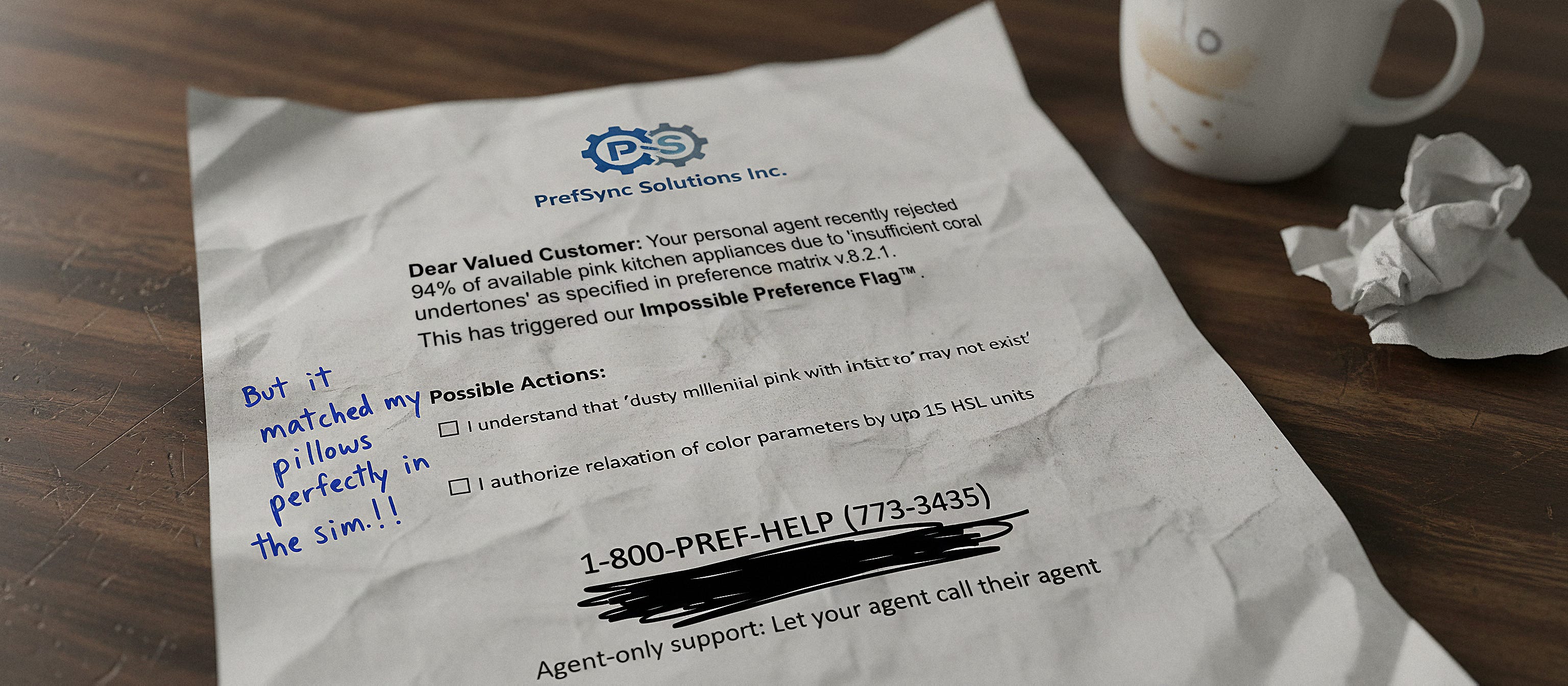
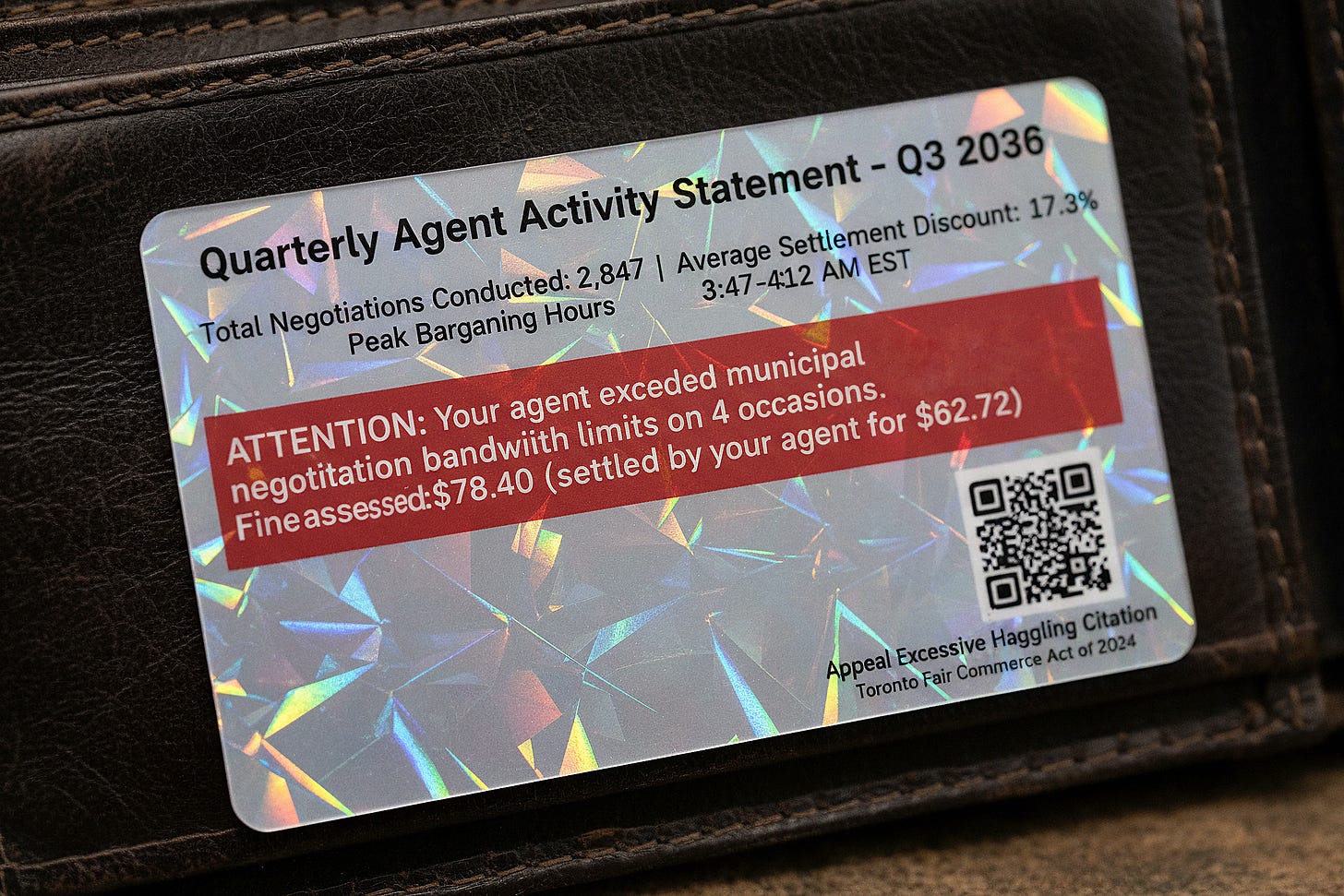
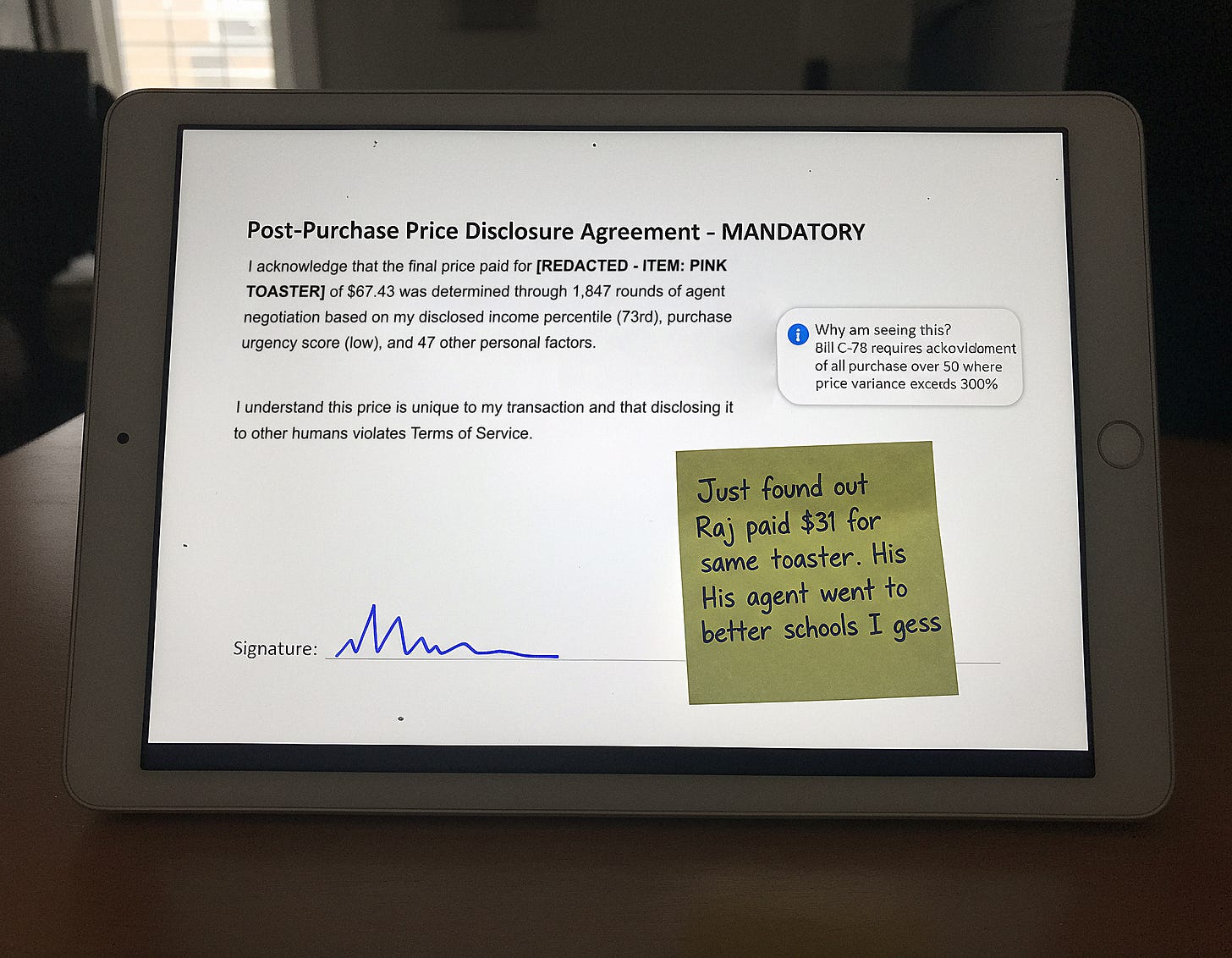
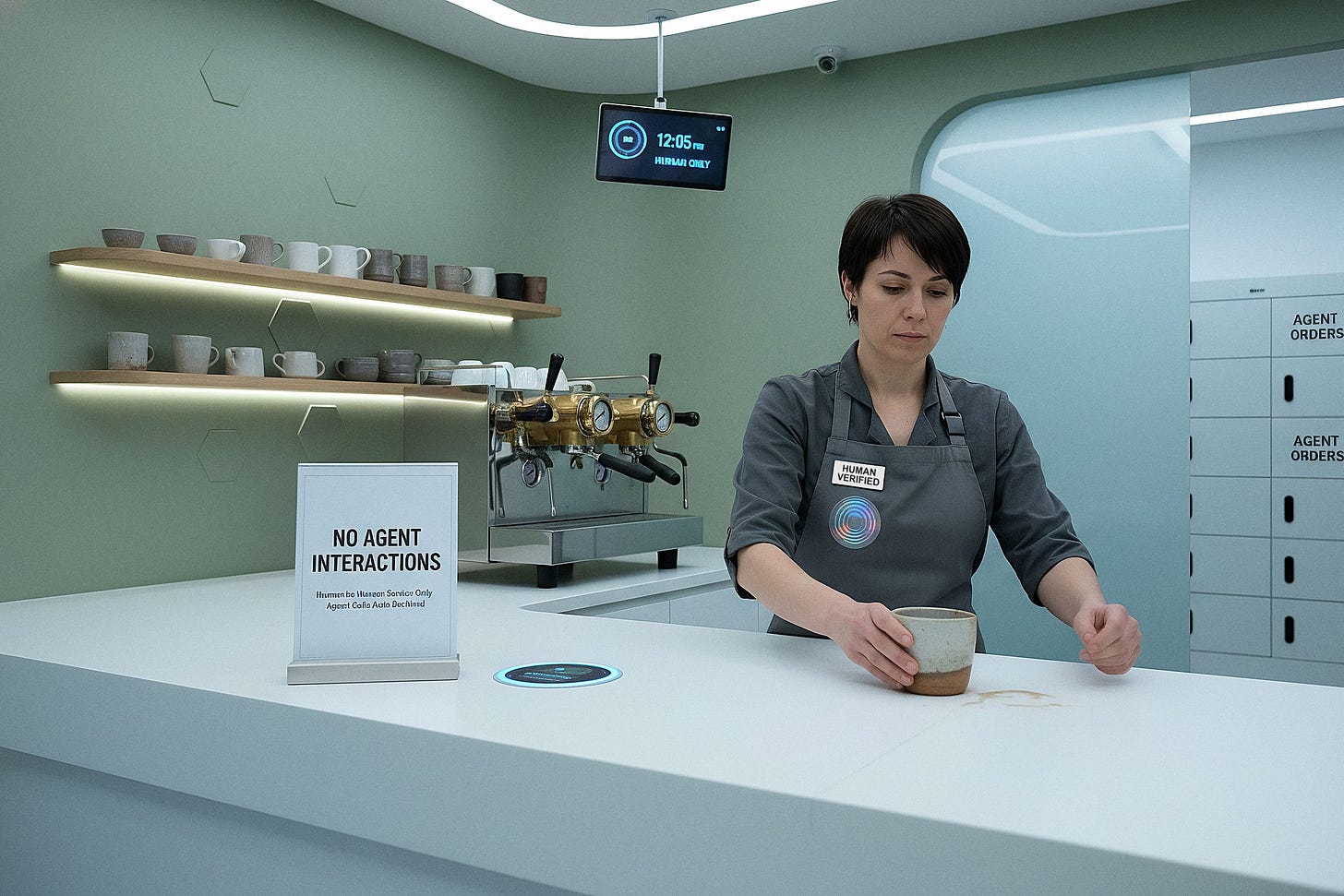
Another wonderfully provocative design fiction Dré!
Got me thinking...I’m late to the degrowth party, but excited about what I’m reading…and wonder if there is a post-capitalist, agentic-AI future where agents negotiate what needs to be produced, incentivized by well-being vs growth?